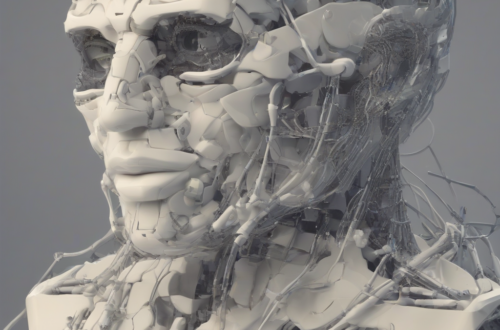Unlocking Potential: A Comprehensive Guide to the Bachelor of Education Degree
The Bachelor of Education (BEd) is a transformative degree that equips aspiring educators with the knowledge, skills, and passion to shape young minds and inspire future generations. This comprehensive guide delves into the intricacies of a BEd, exploring its diverse pathways, curriculum components, career prospects, and the rewarding journey it offers.
Understanding the Bachelor of Education
A BEd is a four-year undergraduate degree program designed to prepare students for a career in teaching. It provides a strong foundation in educational theory, pedagogical practices, and subject-matter expertise. Unlike a general degree with a teaching minor, a BEd offers a much more intensive and focused curriculum specifically designed for the challenges and rewards of the teaching profession.
Specializations and Focus Areas
The beauty of a BEd lies in its versatility. Many universities offer specializations allowing students to focus their studies on a specific age group or subject area. Common specializations include:
- Early Childhood Education (Preschool – Grade 3)
- Primary Education (Grades 1-6)
- Junior Secondary Education (Grades 7-9)
- Secondary Education (Grades 10-12) with specializations in various subjects like Mathematics, Science, English, History, etc.
- Special Education (catering to students with diverse learning needs)
- ESL (English as a Second Language) Education
- Physical Education
- Arts Education
Some universities also offer integrated BEd programs, combining subject-matter study with education courses, allowing students to achieve both a Bachelor’s degree in their chosen subject and a BEd simultaneously.
Curriculum Components of a Bachelor of Education
A typical BEd curriculum incorporates a blend of theoretical and practical components, ensuring graduates are well-equipped for the classroom. Core areas of study often include:
- Educational Psychology: Understanding child development, learning theories, and diverse learning styles.
- Curriculum Studies: Designing and implementing engaging and effective lesson plans aligned with curriculum standards.
- Pedagogy and Teaching Methods: Mastering various teaching strategies, classroom management techniques, and assessment methods.
- Educational Technology: Utilizing technology to enhance teaching and learning experiences.
- Assessment and Evaluation: Developing effective assessment strategies to gauge student learning and provide valuable feedback.
- Special Education Needs: Understanding and addressing the diverse learning needs of students with disabilities.
- Classroom Management: Creating a positive and supportive learning environment that fosters student engagement and success.
- Subject-Specific Pedagogy: In-depth study of teaching methodologies specific to the chosen specialization (e.g., teaching mathematics, teaching literature).
- Practicum/Student Teaching: Gaining hands-on experience in a real classroom setting, under the guidance of experienced mentors.
The Importance of Practicum and Student Teaching
The practicum or student teaching component is arguably the most crucial aspect of a BEd program. This immersive experience allows students to apply their theoretical knowledge in a real-world setting, working alongside experienced teachers and gaining invaluable practical skills. It provides an opportunity to refine teaching techniques, manage classroom dynamics, and develop strong relationships with students.
Career Paths and Opportunities for BEd Graduates
A Bachelor of Education opens doors to a vast array of career opportunities, not only limited to traditional classroom teaching. Graduates can pursue diverse roles in various educational settings and beyond:
- Classroom Teacher (Primary, Secondary, or Special Education): The most common career path, involving direct instruction and mentorship of students.
- Curriculum Developer: Designing and implementing educational materials and programs.
- Educational Consultant: Providing expertise and support to schools and educational organizations.
- Educational Administrator/Principal: Leading and managing schools and educational institutions.
- Special Education Teacher: Working with students with diverse learning needs, providing individualized support and instruction.
- Teacher Trainer/Mentor: Supporting and guiding newly qualified teachers.
- Educational Researcher: Conducting research to improve teaching and learning practices.
- Educational Psychologist: Assessing and addressing the psychological and emotional needs of students.
- Online Teacher/Instructor: Delivering educational content through online platforms.
Further Studies and Professional Development
Many BEd graduates choose to pursue further studies to enhance their expertise and career prospects. Postgraduate options include:
- Master of Education (MEd): Focusing on specialized areas of education, such as curriculum development, educational leadership, or special education.
- Doctor of Education (EdD) or PhD in Education: Conducting advanced research and contributing to the field of education.
Continuous professional development is essential for teachers throughout their careers. This can involve attending workshops, conferences, pursuing additional certifications, and engaging in ongoing learning to stay updated on best practices and educational innovations.
Choosing the Right Bachelor of Education Program
Selecting the right BEd program is a significant decision. Consider the following factors:
- Accreditation: Ensure the program is accredited by a recognized body, guaranteeing the quality of education.
- Specializations Offered: Choose a program that aligns with your interests and career goals.
- Faculty Expertise: Look for programs with experienced and passionate faculty members.
- Practicum Opportunities: Investigate the quality and availability of practicum placements.
- University Reputation: Consider the overall reputation and standing of the university.
- Resources and Facilities: Assess the availability of learning resources, libraries, and technology.
- Student Support Services: Check if the university provides adequate support services for students.
The Rewards of a Career in Education
While the teaching profession presents challenges, the rewards are immense. The opportunity to shape young minds, inspire future generations, and make a tangible difference in the lives of others is deeply fulfilling. A BEd provides the tools and the platform to embark on a rewarding and impactful career that contributes to the betterment of society.
The impact of a dedicated teacher extends far beyond the classroom. Educators play a vital role in fostering critical thinking, creativity, problem-solving skills, and a lifelong love of learning. They serve as mentors, role models, and guides, helping students navigate the complexities of life and achieve their full potential. Choosing a career in education is choosing a path of purpose, influence, and lasting positive change.





